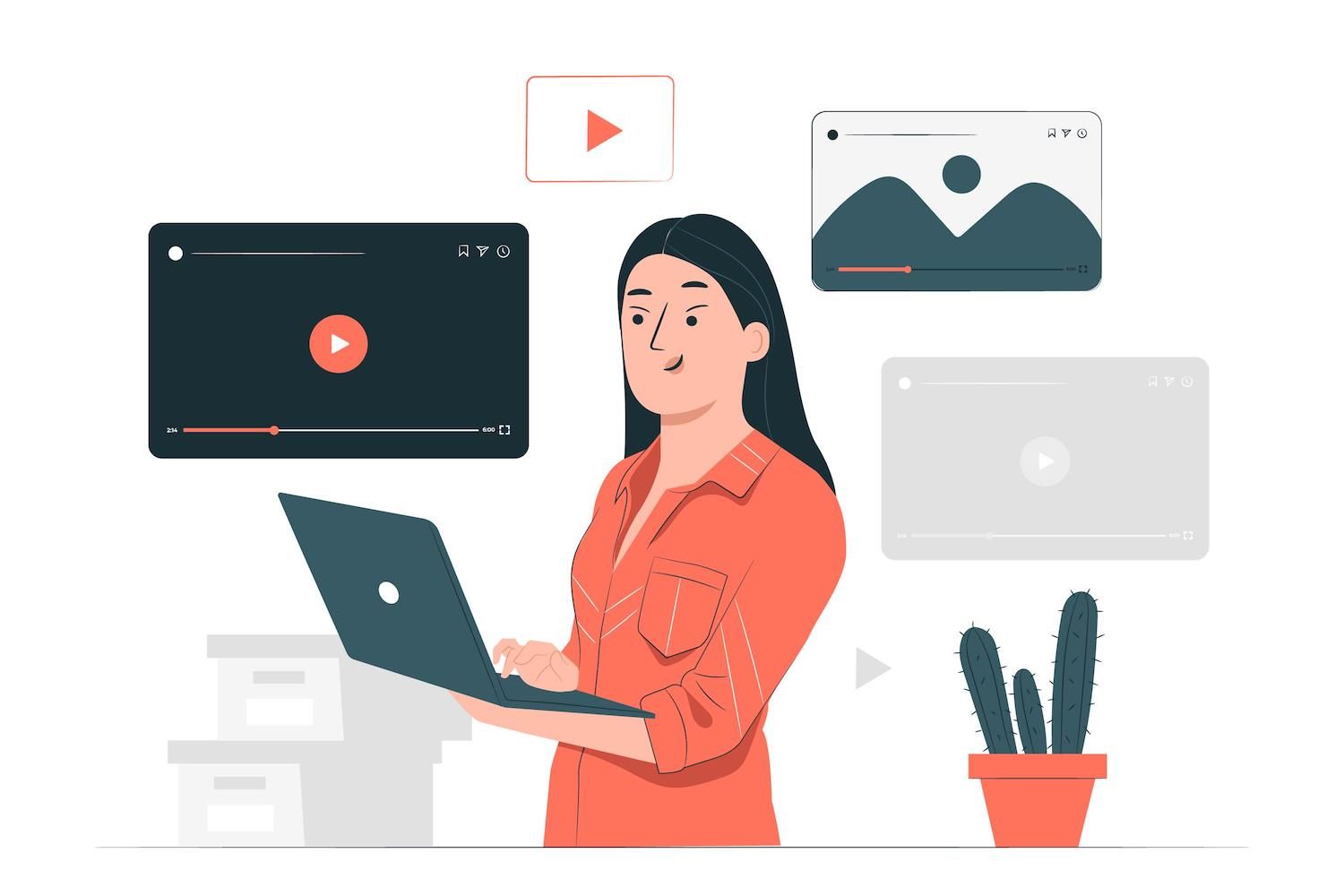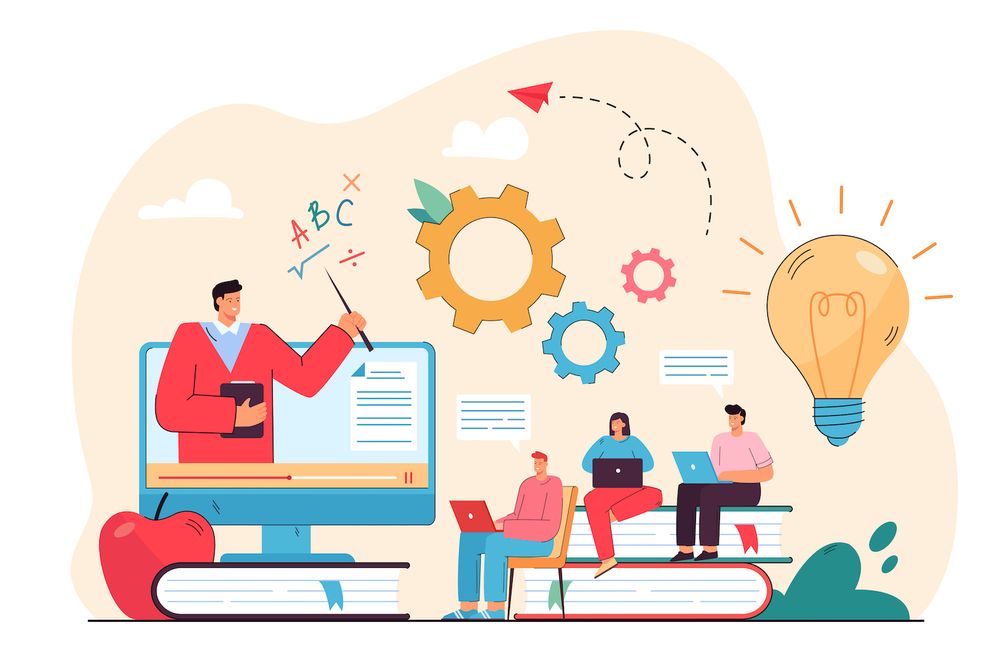Terms

"I was born and raised within Southern Vermont," starts Max Mackson of Maximilian Mackson, LLC. I was homeschooled until high school, which provided me with the chance to spend time on the computer. I was able to learn HTML, CSS, and JavaScript as the main languages on web development, and kept experimenting with other project ideas."
When he was a teenager, Max was enrolled in a theatre program. "I learned how to be professional; we were directed by a strict director, and I'm glad we did because he taught me to always be on time and ensure that you are prepared," he adds. Max's first IT job happened around this time. "Between my sophomore and junior year in high school, I was working at a country club located in town. I was there twice a week updating their website and it was God awful! They were using a bizarre third-party software which took about half an time to accomplish tasks which with WordPress would have taken only two minutes." He describes.
Face-to-face conversations with people while solving the technical issues certainly made a difference the process, says he. "I'm focused on personal connections. I gain a great deal of value out of relationships. During the season in the club, all was on high all the time. If the printer in the kitchen stopped working, I had to run into the kitchen. It was hot and bustling, and everybody was running about me. It was like we were 'in the zone' immediately!"
Max was fascinated by seeing the effects of the work he was doing, and attempting to address the stressful relationship that we share with tech sometimes. "When I was working with others who were working with me, I would tell them "Okay, I've just uploaded an update to this computer' and I would get to know if the update was helpful to them, or if they became confused. I would get to see these different sides and learn how people respond to technology. A lot of IT people will simply declare, "Okay, that is the way things are currently; it's an update' and that irritates me. I love working alongside people."
Max was aware that his skills in tech could help individuals' lives. In the days of country clubs, his dislike for printers started "They just never seem to work when you want for them to!" he smiles. Much part of the time was spent fixing printers; working with hardware taught him a lot about the architecture of systems "I eventually had to rework every system they had over many years. I continue to jobs for them," he adds.
Striking out all by himself
As for a formal education, Max went to Champlain College in northern Vermont but he was taught something different that the traditional course. "I was among twelve information technology majors and it was hilarious when you consider that while I was in college it was decided by the school that they were going to sunset the specialization! They brought us into an area and told us, 'Hey, guys, so you're still going to be able to complete your degree. But we're not going to give you a major until the end of this year""
Max began working in audio-visual production because of his theater background. "That involved more fixing technology as all of the classrooms depended on having computers, projectors, and projection screen," the actor continues. "When it went wrong it was when we'd walk into the classrooms that were full of many people, and they would all stare at us. We'd sit on the table and switch out the projector's bulb!"
"I stayed in college for only two years; I left because I found it to be slow. The web world moves so quickly, that when you finish having to learn something at college and it's outdated and in use. Professors have to learn and to push that out to the students, it's a while," Max adds.
The pace of development hasn't diminished - quite the opposite - and the pace and goal of higher education eventually led Max to start his own business. One reason why he left was because his outlook for the future didn't match those of his university: "They liked to say that they could get 99% of their students jobs immediately after graduation - that's awesome. However, they make sure that everybody gets into the workplace. I love working with individuals, but not in that way; it wasn't for me."
So Max went out on his own and started searching for his first customer. He had just taken an online course and the person running it had asked for testimonials. Max remembers: "I sent one in, just thinking I'd practice my writing skills. However, at the bottom I wrote 'PS - If my abilities could ever serve you, let me know?' and Max replied: 'Well, what do you have to accomplish?'"
Max went through the website and prepared an organized list of changes: "No BS, just right to the point" and Max was greeted with a straightforward answer: "Text me' along with a number. "That was how I got that particular gig. To this day, he's an excellent client!" Max smiles.
Projects and services
"You have all these different pieces of software that power your the business, yet none of it's talking to each other. Max is the one who can get that software communicating perfectly," Max says. Max explains how this results in a more powerful single system, that can be used to drive business growth and save time and energy. "I am an integrator of systems and systems. Most people even my parents just call me the IT person!" he jokes.
Max Explains that an average client's tech stack may have 100 pieces of software, all in the form of silos. "You need to bring everything together in order they communicate with one other. I started working with a couple of clients in Web design, then I began to focus on integration in April 2021, as one of my clients wanted to run a paid members only community."
Max worked with the client, who was an influencer in the field of health and wellness and an evangelist for a few months and things were going smoothly. He had not had any expertise with memberships, however he already anecdotally knew what the pain points that were going to be. "I am now doing research on a number of different membership software companies. I've got a method of researching where I look at various lists of the top software. I'll correlate them."
Max chooses software for the best user experience, both from an admin side and a customer side, to save customer support time in the long run. It is essential to be simple. "I have the ability to operate in a more intricate setting, but I can also see that when something reaches the point where it's not usable to everyday citizens. People want to buy somethingand want to gain access. That's common: when someone would sign into the website, I'd aware of the expression on their face. I'd start explaining the process and they'd be glazed over!"
Integration styles and the future
"Integrations can be deceptively complex," Max muses. "They are of different kinds and different levels. For a native integration such as Mailchimp you click a few buttons, and it's approved, then you're ready to go. Low-code and no-code integrations, such as Zapier's Zaps; and totally custom ground-up integrations where you code everything from scratch."
"Generally, I play in the zero-to- low-code area, as it's proven to work for my customers. For one integration, my client was looking to go very deep with it. They needed to include the functionality that a native integration has, however they did it via Zapier. It took me about a dozen different Zaps to have the entire setup wired up, and also to get it to feel native but I had to create some custom code."
What made that particular project particularly interesting was the number of people who participated. "The first day we launched the project, we ran more than 50,000 tasks on the line, which was insane! It had to be optimized numerous times to be worth the cost. I ended up getting it down to just 5000 or less tasks per day. This was quite high."
The author adds: "That was the first experience I've had working on a project of this size using Zapier. I've had the pleasure of working on lots of projects over the years with different clients, some of which were more focused on design and some which were more technical however, this was my favorite."
This larger scale of development seems to be the driving force behind Max's future. He states: "Longer term, I intend to design software specifically to help businesses." He adds that he thinks about software often because it's a key element of his career and because so much software has been getting worse with time. "It gets slow and bloated It's no longer user-friendly. It's constantly releasing UI changes that only increase the difficulty. As of now there are a lot of users who expect software to suck!"
He explains that he wants to offer a better, simpler, end-user experience. "It's very early on the process of design, however I have some interesting thoughts. I'm guessing about six months away since I prefer to do my work on my own most of the time. I'm not a fan of working with agencies: they give the project over to a new, unnamed developer who will then lock in the closet! I don't like that environment and I tend to work with people in a one-on-one manner."
Max is a regular contributor to his blog, sharing the latest ideas and offers preferential treatment to subscribers of his email list (which he lovingly refers to by the name of "#MilianFam"). And as an exclusive offer to new subscribers coming from , he has created an exclusive bonus course that, at the time of this posting, has not been previously offered elsewhere, for the price of.
